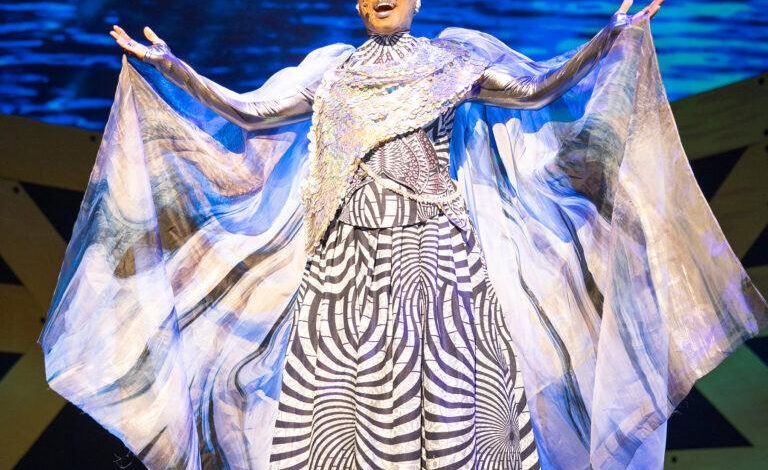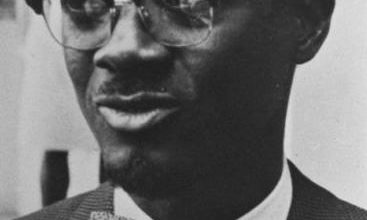West African luminary Angélique Kidjo confronts slavery’s legacy in groundbreaking show

press/slma
Growing up in Ouidah, a coastal city in Benin that was once part of the West African kingdom of Dahomey, Angélique Kidjo was haunted by the specter of slavery. Her family passed on narratives about ancestors who resisted the trans-Atlantic trade that enriched the monarchy while preying upon neighboring peoples.
These stories hovered in the shadows, even as Ouidah became a pilgrimage destination for people drawn to its history as a conduit for hundreds of thousands of Africans on their way to bondage in the Americas.
“I come from that village, and even now the topic is impossible to talk about,” Kidjo told The Chronicle. “It’s not taught in school.”
But now Kidjo is putting the spotlight on the legacy of this world-shaping trauma from a mythic West African perspective in her ambitious new musical production “Yemandja,” which makes its Bay Area premiere Saturday, April 23, at UC Berkeley’s Zellerbach Hall. Starring the five-time Grammy Award-winning vocalist, songwriter and human rights activist backed by her band, it’s a fully staged work that recasts the slave trade as a parable about gods and humans and the generation-rippling costs when people are cleaved from their culture.
“At the core of this is that I come from a country where the slave trade started,” said Kidjo, speaking from Tempe, Ariz., on a video call with her Los Angeles-based daughter Naïma Hebrail Kidjo, who wrote the “Yemandja” book and lyrics. “In the 21st century the wound is still there. Slavery caused all this collateral damage, and no one is immune. You cannot move forward with that kind of weight on your shoulders, but how do we talk about it without being confrontational? We all have to own it.”
Angélique Kidjo confronts the slave trade from a mythic West African perspective in her ambitious new musical production “Yemandja,” Photo: Doug Mason
Co-commissioned by Cal Performances and presented as part of this season’s Illuminations: “Place and Displacement” series, “Yemandja” takes its name from the Yoruban goddess, or orisha, of water and healing. One of the most celebrated and charismatic performers on the world stage, Kidjo makes her theatrical debut in the titular role (“Of course my mom had to be a deity,” quipped Hebrail Kidjo), and like Kidjo’s relationship to the trans-Atlantic slave trade, “Yemandja” is very much a family affair.
Kidjo worked closely with her husband, French musician and producer Jean Hebrail, in setting their daughter’s lyrics to music. They developed the production with director Cheryl Lynn Bruce, an actor, playwright and longtime force at Chicago’s Steppenwolf Theatre. The renowned Los Angeles-reared visual artist Kerry James Marshall created the fantastical stage design, and Cuban American choreographer Beatrice Capote, now based in New Jersey, brought a wide-angle diasporic perspective to the moves she set on the chorus of dancer-singers.
“Yemandja” premiered last month at the Massachusetts Museum of Contemporary Art, one of half a dozen co-commissioning organizations, and while it is often described as a musical, Hebrail Kidjo sees the work as flowing from the way that “music is enmeshed in African life.”
“We’re leaning into some tropes from musical theater and fighting against them,” she explained. “We’re breaking into song because singing is part of the culture, not because it’s a musical.”
While the story is supernatural, Hebrail Kidjo drew elements directly from her mother’s life, like an opening baptismal scene. The drama between gods and humans, the sense of ancestral presence, is an aspect of Beninese culture that Hebrail Kidjo remembers experiencing as a child when she knocked over a bottle of Champagne at a family gathering shortly after her grandfather died.
“I thought, ‘Oh, no! They’re going to yell at me,’ ” recalled Hebrail Kidjo, who grew up tri-cultural in Benin, Paris and Brooklyn, where Kidjo has lived since 1997. “But instead the reaction was, ‘Ah, your grandfather is here.’ That veil between the living and the departed is very porous in Benin, which is so beautiful and comforting.”
Jean Hebrail
Hebrail Kidjo notes that the interplay of gods and people in West African mythology is sometimes uncannily similar to that of the Greeks, though with gods who are still very much present in the culture. In many ways, “Yemandja’s” tale of betrayal, honor and revenge set amid the Yoruba pantheon is the latest Kidjo creation that seeks to repair a broken world.
Most conspicuously, starting with 1998’s “Oremi,” she recorded a trilogy of albums that put a West African stamp on African diaspora songs and idioms. The first project brought African American music back to the motherland, and she followed with 2002’s Afro-Brazilian-steeped “Black Ivory Soul” and 2004’s “Oyaya!,” an album exploring Caribbean influences.
“For me, ‘Yemandja’ is what you’ve been doing all along,” Hebrail Kidjo said while addressing her mother. “It’s what you started in your ‘Black Ivory Soul’ trilogy, exploring that bridge, being that bridge between Benin and the West. It felt like this is a natural continuation of the way you’ve shown that songs have this incredible power to bypass words, but what is it like if we put bodies onstage — literally a flesh dimension to this thing that’s quintessentially you.”
Angélique Kidjo’s “Yemandja”: 8 p.m. Saturday, April 23. $36-$78. Zellerbach Hall, UC Berkeley. 510-642-9988. calperformances.org
Andrew Gilbert
Andrew Gilbert is a Bay Area freelance writer.
Source: Datebook





